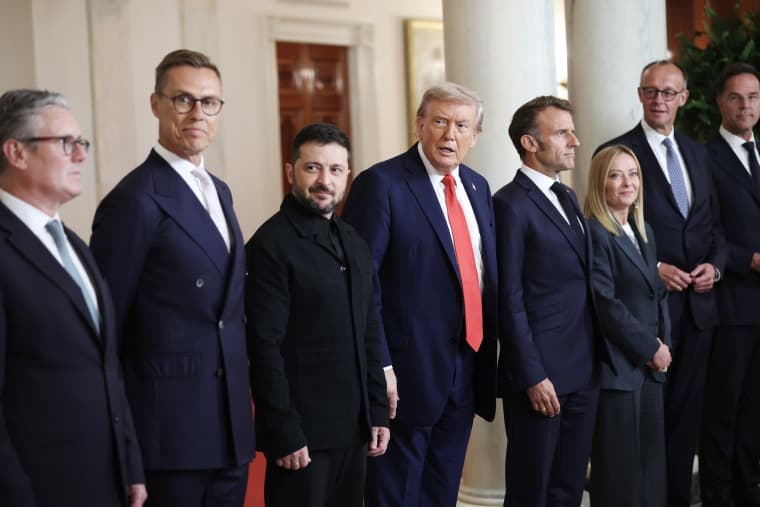Putin and Zelenskyy Expected to Meet Within Two Weeks Following Trump's Diplomatic Push

Washington D.C. – A direct meeting between Russian President Vladimir Putin and Ukrainian President Volodymyr Zelensky is anticipated within the next two weeks, a development spurred by U.S. President Donald Trump's recent diplomatic efforts. The potential face-to-face encounter, aimed at de-escalating the ongoing conflict, comes despite Putin's long-standing characterization of Zelensky as an "illegitimate leader and puppet," as highlighted by The Wall Street Journal. The exact location for the summit remains undetermined, with several countries being considered.
President Trump intensified his peace initiatives during a recent White House meeting with President Zelensky and several European leaders. During these discussions, Trump reportedly stepped away to make a direct phone call to President Putin. A "hot mic" moment captured Trump telling French President Emmanuel Macron that he believed Putin "wants to make a deal for me." Trump has expressed a preference for a bilateral meeting between Putin and Zelensky first, to be followed by a trilateral summit involving himself to "close it up."
Moscow, however, has adopted a more measured tone regarding the proposed summit. Russian Foreign Minister Sergey Lavrov stated that any such meeting would need to be prepared "step by step, gradually, starting from the expert level." Analysts suggest that a direct meeting poses political risks for Putin, given the Kremlin's consistent narrative questioning Zelensky's legitimacy. Furthermore, the International Criminal Court's arrest warrant for Putin complicates the search for a neutral venue, with Switzerland and Hungary among the locations being discussed.
Despite these complexities, President Zelensky has affirmed his readiness to meet with Putin. His focus, along with that of the European leaders present at the White House, remains on securing a reliable and lasting peace for Ukraine and broader European security. While Trump has suggested that a ceasefire is not immediately necessary, emphasizing a direct path to a peace agreement, the fundamental disagreements over territorial concessions and security guarantees continue to present significant hurdles for any potential resolution.